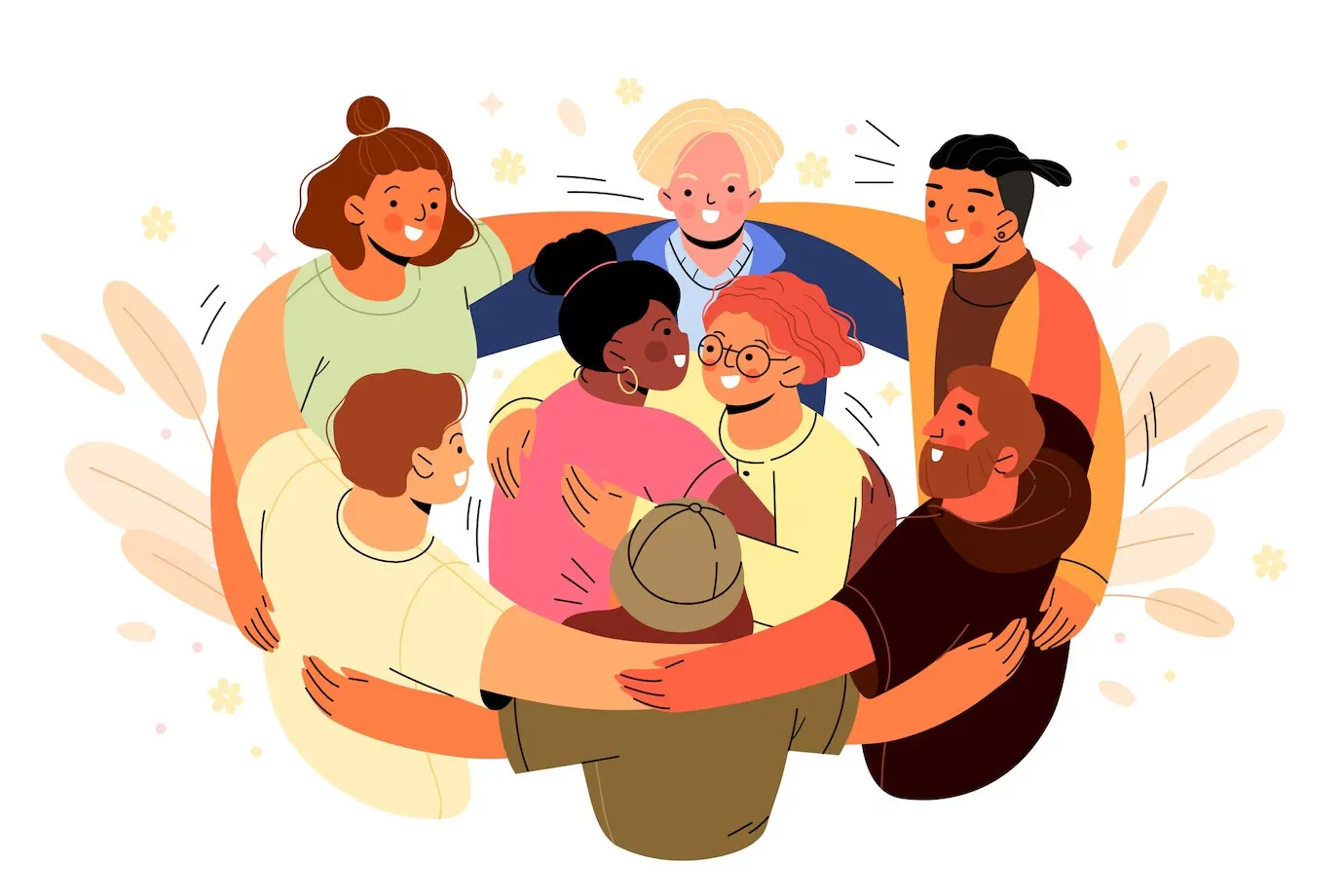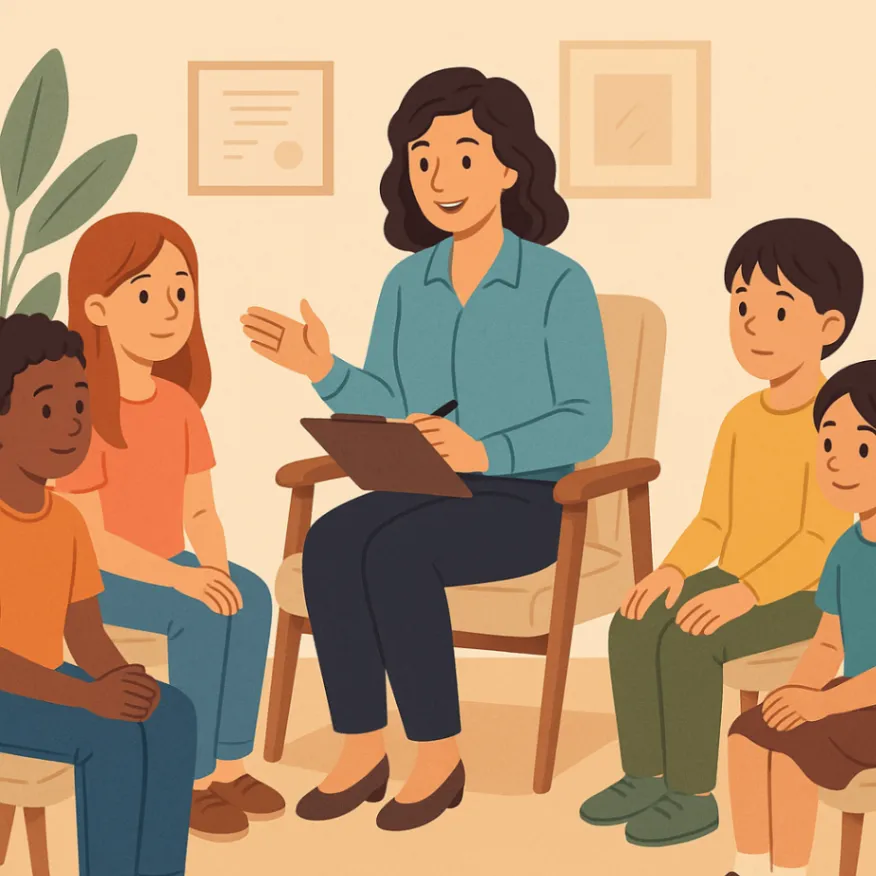
Mental health is very important for every one of us. But there are still many wrong ideas to do with mental illness. This can stop people from getting the care they need. These common myths can also make mental health challenges feel lonely for the people who have them. When we know the truth about mental health disorders, we help to break these hurtful myths. This lets people feel good enough to ask for mental health services. No matter if you face anxiety disorders, serious mental illness, or just a little distress each day, it is good to learn about these things. When we learn more, we help make our communities stronger and healthier for all.
In Houston, a prevalent misconception suggests that mental health issues are confined to particular demographics. Many believe they primarily affect certain individuals, overlooking the reality that mental health disorders can impact anyone, irrespective of age, gender, or socioeconomic status. This misunderstanding perpetuates stigma and contributes to the hesitance in seeking mental health services, further exacerbating mental health struggles.
Another myth is that mental health challenges are less significant than physical health problems. In truth, mental illnesses such as anxiety disorders and substance use disorder can be just as debilitating and are, in fact, leading causes of distress in the community. Understanding these facts is essential for fostering peer support and building an empathetic approach towards those experiencing mental health issues in Houston.
A big myth about mental health is that mental illness affects only certain types of people. Some people think that things like how much money you have, where you live, or your race can protect you from mental health issues. But this is not true.
Mental illness can happen to anyone. Risk factors like your family’s history, trauma, or problems with substance use can put anyone at risk. It does not matter what the background is. Saying mental illness is a personal weakness adds to the stigma and makes things worse for people.
In 2020, one in five adults in the United States dealt with a mental health issue. This shows that mental health problems are actually very common, more than many people think. When we understand that anyone can have mental health challenges, it helps us care about others and build stronger support for them. If we know and accept these facts, we can give better help and mental health services to those who need it.
The truth is, mental health problems do not have borders. Mental illness can touch anyone. It does not matter if you are a child, a teen, an adult, or older. It does not matter if you are rich, what race you are, or how others see you in your community. For example, one in six young people will have a serious mental illness, like major depression.
These issues with mental health can come from many risk factors. Some people have trauma, go through stress for a long time, or feel distress because of a problem with their physical health. Science shows mental health disorders are tough to figure out and do not care where you come from.
When we know that mental illness can happen to anyone, we can start to get rid of the stigma. If we focus on peer support and ways to help all kinds of people, then treatment can really work better. Anyone who has distress or faces anxiety disorders ought to get fair and good mental health care.

Children and teens can also have mental health struggles. Some people still think these problems are not real, but that is not true. There are many myths about mental health challenges in young people. These myths can stop early help from reaching them. It is not right to say that young people only have short-term issues or that they are making things up. In reality, anxiety disorders and other mental health disorders can start while they are still young.
Most adults with mental health disorders started facing these challenges before they even became adults. This shows why it is so important to give help at the right time. When we talk about and clear up these myths, it lets more children and teens get the mental health services they need.
There is a common misunderstanding that children and teenagers do not have real mental health struggles. Many people in society think the problems young people face are just “phases” and that, over time, they will simply get over them. They do not see these problems as true mental health disorders. Because of this, a lot of young people do not get the help and support they need.
Kids and teens, including those living in Houston, TX, can have mental health challenges like anxiety disorders or depression. These mental health issues can come from many things, like family troubles or stress from schoolwork. If you do not get help for the early warning signs, these mental health disorders can stick around for a lifetime.
Calling these mental health struggles small or unimportant only makes things worse. When people notice mental health challenges early, they can often manage them well with therapy and strong peer support. Ignoring or making light of these issues for young people just keeps them from getting the help they need, and it makes their mental health problems last longer.
In Texas, young people deal with serious mental health challenges. Research shows that suicide is the second leading cause of death for those aged 10 to 24. Anxiety disorders are also common in this age group. These problems often begin when kids are young.
Young people can be more at risk for developing long-term conditions. Helping early, getting peer support, and having the family involved are important to manage mental health struggles. If these supports are missing, issues like anxiety disorders can hurt their school life and friendships in a big way.

To handle this, communities need to focus on giving young people access to mental health services made for them. This will help them with their unique mental health needs.
It is important to know the truth about mental health and mental health issues. When we clear up common myths, we help build a kinder and more informed society. This also helps people who face mental health challenges, no matter where they are from. Anyone can have mental health problems, even children or teens. When we learn about these struggles, it helps to break down the stigma. It also makes it easier to have open talks about mental health. Getting help when you need it is a strong and brave thing to do. If you understand these facts, you help others as well. If you, or someone you know, are having trouble, try to talk to a professional. They can give good care and support for mental health.
Riaz Counseling in Texas takes insurance from many providers. These include BCBSTX, Optum, Magellan, Aetna, and Cigna. It is important for people to check with the counseling center to know what their plan covers. You should also ask about any costs you might need to pay yourself.
No, mental illness does not come from how someone acts. It happens because of a mix of different risk factors like genes, things that happen in life, or the way the brain works. Mental health disorders are real health problems that need the right kind of care and treatment.
Yes, people who have mental health issues can get better if they have peer support, go for therapy, and take the right treatment. Getting better helps people manage their distress. It also helps them get back to their goals. With support, people with mental health problems can live lives that are meaningful and productive.
Getting therapy does not mean you are “crazy.” It is a good step to deal with mental health challenges. Going to therapy can help lower the stigma around mental illness. Therapy gives people a safe place where they can talk about risk factors, learn how to find balance, and work on feeling well.
Medication is not the only answer when it comes to mental health challenges. People can also get help from therapy, peer support, and other options if they have addiction or a substance use disorder. Many find that a mix of these ways can work well. This kind of plan is made to fit what each person needs the most.
Support can be many things. It can be listening without judging them. It can also mean helping them find mental health services in Houston. You can offer them steady peer support, too. Remind them that they are not alone in this. Give them real help to lower their distress and deal with what is going on.
If you feel that you or someone you know, may benefit from therapy, please reach out to our office for a FREE 15 minute consultation: LINK.
Stay informed about the latest research in psychology.
.png)
Explore how Internal Family Systems (IFS) therapy heals trauma and restores self-leadership.
.png)
Explore how Internal Family Systems (IFS) therapy heals trauma, anxiety, and inner conflict.
.png)
A practical guide to recognizing, preventing, and healing teacher burnout in Houston schools.